Featured
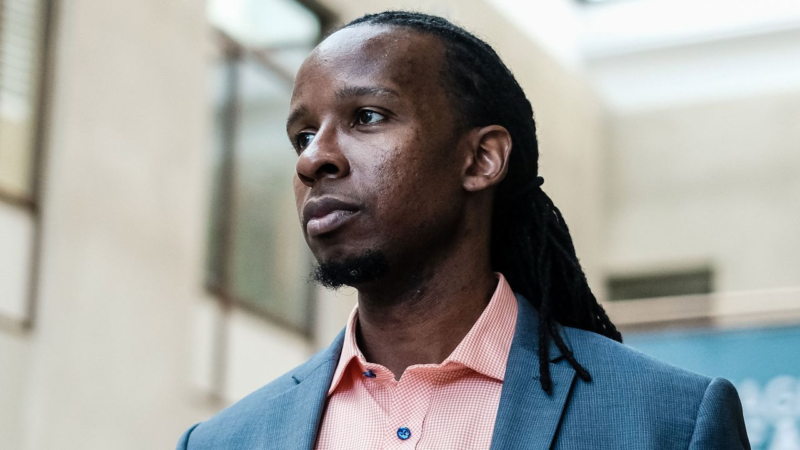 Ibram X. Kendi says a backlash has ‘crushed’ the nation’s racial reckoning. But there’s one reason he remains hopeful. By John Blake / CNN
Ibram X. Kendi says a backlash has ‘crushed’ the nation’s racial reckoning. But there’s one reason he remains hopeful. By John Blake / CNN
Kendi says the current campaign against what one conservative commentator calls “systemic wokeness” is an effort to halt the antiracist momentum generated by the Floyd protests. When asked what happened to that momentum, Kendi gives a wry chuckle.
Despite the change in the political climate since Floyd was murdered nearly three years ago, Kendi still believes racism can be vanquished. He says it’s not an all-powerful “deity” that can never be defeated. That’s one reason he remains hopeful about antiracist activism. “Racist ideas are not natural to the human mind,” he wrote. “In the grand scope of human existence, race and racism are relatively young. Prior to the construction of race and racism in the 1400s, human beings saw colors but didn’t group them into continental ‘races’ and attack wholly made-up positive and negative characteristics to said races. That’s something we learned to do.” Read more
Political / Social
 The new Red Scare for red states: Diversity programs. By Bianca Qilantan / Politico
The new Red Scare for red states: Diversity programs. By Bianca Qilantan / Politico
Texas Republican Gov. Greg Abbott issued a directive last month instructing public universities across the state to stop considering DEI statements in their hiring practices. | Michael M. Santiago/Getty Images
To save free speech on college campuses, Republican lawmakers and governors say it’s time to stop talking about diversity, equity and inclusion. A movement to temper difficult conversations about race in the classroom, promote “patriotic” education and limit how gender is discussed with young kids now includes nixing college DEI initiatives conservatives equate with “wokeness” and Cold War-era “loyalty oaths.” Read more
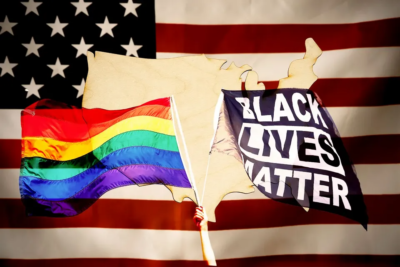 How a far-right think tank made everything “woke.” By Amanda Marcotte / Salon
How a far-right think tank made everything “woke.” By Amanda Marcotte / Salon
However racist you thought the “woke banks” talking point was, somehow it’s even worse
When Republicans use the word “woke,” it’s a deliberate bit of obfuscation, a way to signal bigotry to their fellow travelers while pretending it’s something else to those who call them out for it. But it’s also pretty hard to ignore the bullhorn levels of racism that are often embedded in complaints about “woke” culture. When Rep. Marjorie Taylor Greene, R-Ga., complains that it’s “woke” to let Black women sing at the Super Bowl, for example, the only rational conclusion is that it’s their skin color that offends her. Read more
Related: Florida school library controversy: Teachers sue DeSantis’ government. By Nirvi Shah / USA Today
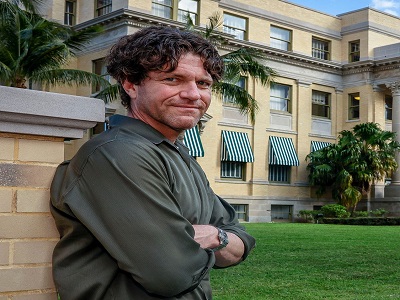 Palm Beach Atlantic professor fired after racial justice lessons. By Andrew Marra / USA Today
Palm Beach Atlantic professor fired after racial justice lessons. By Andrew Marra / USA Today
Sam Joeckel, a veteran professor at Palm Beach Atlantic University, said in a statement Thursday that the West Palm Beach school had “made the disappointing decision to terminate my contract early.”
The move comes a month after school administrators told Joeckel they were investigating a concern raised by a parent that he was “indoctrinating” his students by incorporating lessons about racial justice into his writing composition course. Joeckel, who has taught at the 3,700-student Christian school for two decades, said he has long included teachings about racial justice in the class and that administrators had never expressed concerns about them before. Read more
 A Federalist Society for all things: Dark money enters the culture wars. By Lucian K. Truscott IV / Salon
A Federalist Society for all things: Dark money enters the culture wars. By Lucian K. Truscott IV / Salon
Donald Trump’s so-called Supreme Court whisperer wants to expand his success to other parts of American society. One of the most successful right-wing organizers in this country’s history, Leonard Leo, is now out to “crush liberal dominance and wokeism” across a broad range of American cultural, journalistic, and political life.
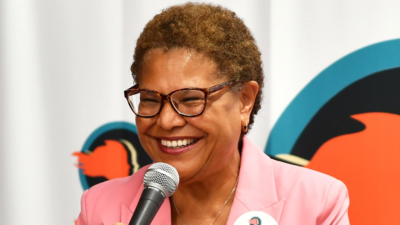 The New Mayor of Los Angeles. By Emily Witt / The New Yorker
The New Mayor of Los Angeles. By Emily Witt / The New Yorker
Karen Bass on combatting homelessness, reforming the police department, and building a greener city.
Last November, after Karen Bass won a historic race to become the first Black woman elected as the mayor of the city of Los Angeles, the L.A. Times editorial page offered its congratulations. “Condolences as well,” the editors added, “for a difficult job ahead.” After six terms representing Los Angeles districts in Congress, Bass returned to her native city to confront a crisis decades in the making: a severe housing shortage that has contributed to more than forty thousand people living in the streets, overcrowded neighborhoods, and an overheated real-estate market that is pricing out the middle class from rentals and homeownership. Read more
Related: For Black Mayors, Any Sign of Imperfection Means The Ax. By Erin Aubry Kaplan / HuffPost
 Why are so many Americans poor? Because we allow it, two books argue. By Timothy Noah / Wash Post
Why are so many Americans poor? Because we allow it, two books argue. By Timothy Noah / Wash Post
Sociologists Mark Robert Rank and Matthew Desmond examine the attitudes and policies that keep poverty entrenched
How can the richest nation on Earth have so much poverty? It isn’t a new question. “The enormous increase in productive power which has marked the present century,” the social reformer Henry George complained in his 1879 bestseller, “Progress and Poverty,” “has no tendency to extirpate poverty.” George’s riddle resurfaces in two new books by eminent American sociologists: “The Poverty Paradox” by Washington University’s Mark Robert Rank and “Poverty, by America” by Princeton’s Matthew Desmond. Like George, both authors start from the premise that industrial capitalism generates more than enough profit to eliminate poverty. So why doesn’t it? Because, Rank argues, we don’t understand poverty’s causes. Desmond takes a darker view: because we’re complicit in poverty’s creation. Read more
 Racial Justice Leaders Are Calling For An End To Deadly Traffic Stops. By Phillip Jackson / HuffPost
Racial Justice Leaders Are Calling For An End To Deadly Traffic Stops. By Phillip Jackson / HuffPost
Three leaders from different racial justice organizations say traffic stops are the wrong way to deter crime.
Two months after Tyre Nichols died after being arrested by Memphis police officers at a traffic stop, city council members passed new police reform ordinances that will change how city police conduct traffic stops and ban unmarked vehicles from being involved in pulling people over. Police make about 20 million traffic stops each year, largely for issues such as a broken taillight, and Black drivers are disproportionately pulled over, they wrote. In addition to saying individual police departments should make changes, the authors called on the U.S. Department of Transportation, which provides funding for highway safety programs, to address the issue. Read more
 Black veterans were more often denied VA benefits for PTSD than white counterparts, newly surfaced study shows. By Laura Strickler / NBC News
Black veterans were more often denied VA benefits for PTSD than white counterparts, newly surfaced study shows. By Laura Strickler / NBC News
“Ever since I came back from Vietnam, I knew that I had a problem, but I didn’t know what it was,” said one Black veteran.
The analysis crunched claims data from fiscal year 2011 through 2016 and showed that Black veterans seeking disability benefits for PTSD were denied 57% of the time, compared to 43% for white veterans. The report emerged as part of an open records lawsuit filed by an advocacy group for Black veterans. Read more
Historical / Cultural
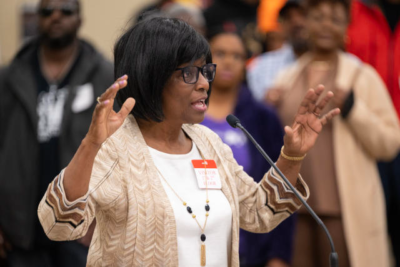 California might resurrect a modern Freedman’s Bureau for reparations. By Curtis Bunn / NBC News
California might resurrect a modern Freedman’s Bureau for reparations. By Curtis Bunn / NBC News
The California Reparations Task Force will recommend a new version of the Freedman’s Bureau to administer any potential reparations programs.
The nine-member California task force, impaneled by Gov. Gavin Newsom, has been researching for two years the depth of the harms inflicted by racism in the state and beyond. During a public hearing earlier this month in Sacramento, the task force agreed with Chair Kamilah Moore to recommend a state agency called the Freedom Affairs Agency that would work similarly as the Freedmen’s Bureau. Read more
Related: San Francisco is discussing reparations proposals, but they’re a long way off. By Vanessa Romo / NPR
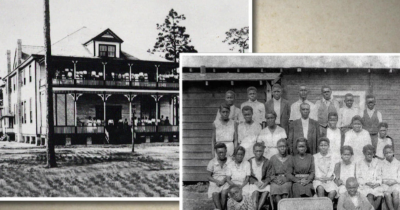 A Florida town, once settled by former slaves, now fights over “sacred land.” By Martha Teichner / CBS News
A Florida town, once settled by former slaves, now fights over “sacred land.” By Martha Teichner / CBS News
“This is sacred land,” said N.Y. Nathiri, a third-generation resident of Eatonville, Fla. “It’s special for us. It’s who we are. And we’re not going to let them take it away from us, no.”
Nathiri heads the association to preserve the Eatonville community, a town founded in 1887 by Joe Clark. That it even happened was remarkable. After the end of the Civil War, formerly enslaved African Americans flocked to central Florida to work. White property owners refused to sell them land, until Clark convinced two White Northerners with homes in the area, Lewis Lawrence and Josiah Eaton, to make available plots they could buy in what became Eatonville, one of the first Black towns to incorporate. Read more
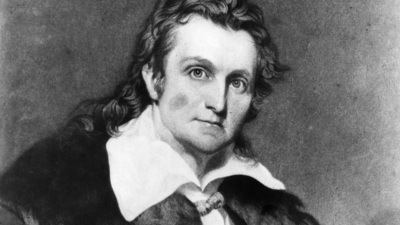 Audubon faces a backlash over keeping a name that evokes a racist enslaver. By Bill Chappell / NPR
Audubon faces a backlash over keeping a name that evokes a racist enslaver. By Bill Chappell / NPR
John James Audubon inspired generation with his Birds of America compendium. But his legacy also includes racist views and the owning and selling of enslaved people — bringing calls for the National Audubon Society to change its name. Hulton Archive/Getty Images
Famous naturalist John James Audubon “did despicable things” and supported his work by buying and selling enslaved people — and that’s according to the organization that bears his name. But the National Audubon Society’s board of directors rejected the idea of changing its name this week, setting off resignations amid plans from local groups to rename themselves anyway. Read more
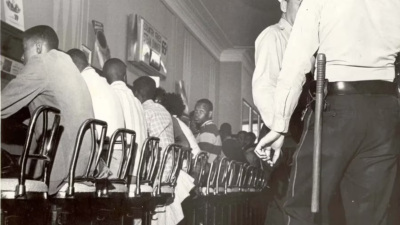 This new play details historic Tampa lunch counter sit-ins. By Maggie Duffy / Tampa Bay Times
This new play details historic Tampa lunch counter sit-ins. By Maggie Duffy / Tampa Bay Times
Tampa, FL– Black high school and college students participate in a sit-in at a Woolworth’s lunch counter in Tampa on Feb. 29, 1960. Tampa’s Stageworks Theatre presents a new play detailing this event called “When the Righteous Triumph,” happening March 17-April 2, 2023. [ Times (1960) ]
“When The Righteous Triumph” details the sit-in protests at downtown Tampa lunch counters in 1960 that led to their desegregation. The play was written by dramatist and University of South Florida professor Mark E. Leib and was commissioned by Stageworks. Editor’s Note: I participated in this sit-in as a Blake High School student. Read more
 Why Historically Black Fisk University Needs An Art Museum Now. By Marybeth Gasman / Forbes
Why Historically Black Fisk University Needs An Art Museum Now. By Marybeth Gasman / Forbes
Founded in 1866, historically Black Fisk University is the oldest institution of higher education in Nashville, Tennessee. It has a storied history, having educated sociologist W.E.B. Du Bois, historian John Hope Franklin, poet Nikki Giovanni, and activists John Lewis and Diane Nash, among many others.
In the midst of these contributions stands one of the nation’s greatest art collections, and unfortunately it is rarely ever seen. Today, along with the over 100 pieces in the O’Keefe collection (which is shared with the Crystal Bridges Museum of Art as the result of a financial partnership), the University has more than 4500 objects of art, mainly in storage. Shown is a mural painted by Aaron Douglas at Fisk University. Read more
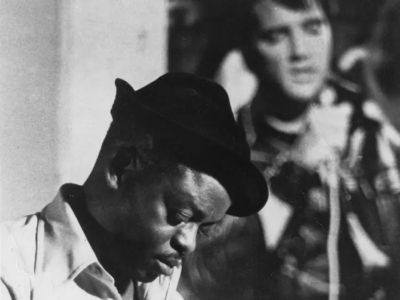 Meet the Black musician behind Elvis’ biggest songs, who had to give up his writing credits and never met The King in person. By Brianna Holt / Insider
Meet the Black musician behind Elvis’ biggest songs, who had to give up his writing credits and never met The King in person. By Brianna Holt / Insider
Studio portrait of Otis Blackwell writing music with a poster of Elvis Presley behind him. Gilles Petard/Redferns/Getty Images
Otis Blackwell, a Black American singer and songwriter who also settled into the Nashville music scene, wrote “All Shook Up,” “Don’t Be Cruel” and “Return to Sender,” three of Elvis’ most famous early recordings, which were sung similarly to how Blackwell had performed them on his demo records. Read more
 Black Music Sunday: These Black divas sang a classical storm of opera. By Denise Oliver Velez / Daily Kos
Black Music Sunday: These Black divas sang a classical storm of opera. By Denise Oliver Velez / Daily Kos
Leontyne Price in 1961
When exploring the history of Black women singers, far too often the discussion fails to look beyond blues, jazz, or R&B—forgetting (or ignoring) the contributions of classically trained vocal artists. Yet opera and the classical concert stage, despite largely white audiences—including an American era of “whites only”—have always been enriched by the contributions of Black divas. Read and listen here.
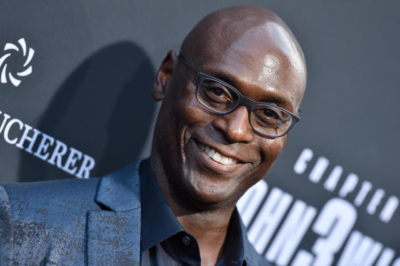 Lance Reddick, star of ‘The Wire’ and ‘John Wick,’ dead at 60. Carson Blackwelder, and Stephen Iervolino / GMA
Lance Reddick, star of ‘The Wire’ and ‘John Wick,’ dead at 60. Carson Blackwelder, and Stephen Iervolino / GMA
The actor’s representative confirmed his death to ABC News, saying Friday he “passed away suddenly this morning from natural causes.”
Reddick, who played Baltimore cop Cedric Daniels in HBO’s acclaimed drama “The Wire,” more recently logged a memorable recurring performance as The Continental’s concierge, Charon, in the “John Wick” series — including the upcoming fourth installment, which will be released March 24. Read more
Related: The Purposeful, Inimitable Presence of Lance Reddick. By Roxana Hadadi / Vulture
Sports
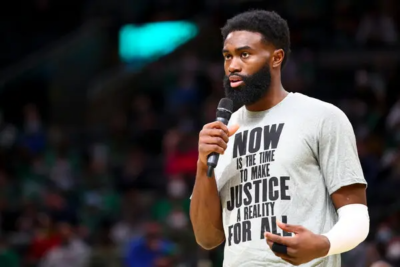 Jaylen Brown on Basketball, Activism and Being Black in Boston. By Sopan Deb / NYT
Jaylen Brown on Basketball, Activism and Being Black in Boston. By Sopan Deb / NYT
The star Celtics guard talks about his career year in the N.B.A., educational inequality and his association with Kanye West.
Boston Celtics guard Jaylen Brown was around 7 years old when he asked his grandmother Dianne Varnado for a new Xbox. Varnado, a longtime public-school teacher and social worker, made him write a paper about it. “‘If you want something, you’ve got to be able to explain why,’” Brown, 26, recalled her telling him. His wants are different now: to win an N.B.A. championship; for players to share in more of the league’s profits; to see an end to anti-Black racism in policing and school funding. Brown has used his celebrity platform to explain why he is passionate about issues like income inequality. Derek Van Rheenen, one of Brown’s former professors at the University of California, Berkeley, described him as “intellectually curious” and “politically invested, socially conscious.” Read more
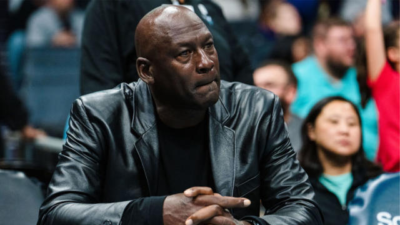 Michael Jordan in talks to sell majority stake in Hornets, sources say. By Adrian Wojnarowski / ESPN
Michael Jordan in talks to sell majority stake in Hornets, sources say. By Adrian Wojnarowski / ESPN
Charlotte Hornets owner Michael Jordan is engaged in serious talks to sell a majority stake in the franchise to a group led by Hornets minority owner Gabe Plotkin and Atlanta Hawks minority owner Rick Schnall, sources told ESPN on Thursday.
If a sale is completed, Jordan is expected to remain with a minority stake in the franchise, sources said. Jordan, a six-time NBA champion and five-time MVP, is considered by many to be the greatest player in the history of the game and has been the league’s only Black majority owner. He paid 275 million for a majority stake in 2010, his stake is worth over one billion. Read more
 Being a Black women’s basketball player in the Ivy League. By Sean Hurd / Andscape
Being a Black women’s basketball player in the Ivy League. By Sean Hurd / Andscape
Eight student-athletes describe the perceptions, challenges and joys of the experience
Andscape spoke to Black women’s basketball players representing each of the eight Ivy League institutions. They detailed the challenges and joys of their collegiate experiences, from dealing with microaggressions on their campuses to finding and creating communities with other Black athletes at their universities. The participants are: Lexi Love, senior, Brown; Lillian Kennedy, senior, Columbia; Jada Davis, sophomore, Cornell; Karina Mitchell, senior, Dartmouth; Gabby Donaldson, senior, Harvard; Sydnei Caldwell, senior, Penn; Chet Nweke, junior, Princeton; and Nyla McGill, sophomore, Yale. Read more
Site information
Articles appearing in the Digest are archived on our home page. And at the top of this page register your email to receive notification of new editions of Race Inquiry Digest.
Click here for earlier Digests. The site is searchable by name or topic. See “search” at the top of this page.
About Race Inquiry and Race Inquiry Digest. The Digest is published on Mondays and Thursdays.
Use the customized buttons below to share the Digest in an email, or post to your Facebook, Linkedin or Twitter accounts.